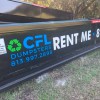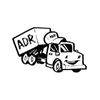
Whether it's needles, red bag medical waste disposal, or any other medical waste we have a solution to fit your needs. Red Bags is your insurance policy that all medical waste is handled properly. With Red Bags your following the laws and staying in compliance at all times. Our goal is to simplify your transaction to put your mind at ease. This is old time customer service at it's best, from the initial phone call to the follow up call our expectations were exceeded.
We would recommend you to anyone that needed professional service.
We would recommend you to anyone that needed professional service.
Services
Medical waste disposal is any discarded biological product such as blood or tissue removed from operating rooms, morgues, laboratories, or other medical facilities.
The term may also be applied to bedding, bandages, syringes, and similar materials that have been used in treating patients and to animal carcasses or body parts used in research.
Medical waste disposal is regulated at the state and local levels.
With Red Bags, medical waste disposal is easy and affordable.
We provide the "Safety Boxes" and red bags with the general service at no additional charge.
The term may also be applied to bedding, bandages, syringes, and similar materials that have been used in treating patients and to animal carcasses or body parts used in research.
Medical waste disposal is regulated at the state and local levels.
With Red Bags, medical waste disposal is easy and affordable.
We provide the "Safety Boxes" and red bags with the general service at no additional charge.
Pharmaceutical waste management is a long and complicated topic that falls within the hub of hazardous waste management.
The Resource Conservation and Recovery Act (RCRA) provides guidance regarding medications that are known environmental hazards.
These are called hazardous pharmaceutical wastes or RCRA drug wastes.
The EPA rule, "Management Standards for Hazardous Waste Pharmaceuticals" applies to pharmaceutical wastes that meet the RCRA definitions.
Not all pharmaceuticals are created equally, and not all are considered hazardous, but all drugs must be disposed of properly.
The Resource Conservation and Recovery Act (RCRA) provides guidance regarding medications that are known environmental hazards.
These are called hazardous pharmaceutical wastes or RCRA drug wastes.
The EPA rule, "Management Standards for Hazardous Waste Pharmaceuticals" applies to pharmaceutical wastes that meet the RCRA definitions.
Not all pharmaceuticals are created equally, and not all are considered hazardous, but all drugs must be disposed of properly.
All businesses and institutions that generate pharmaceutical waste are responsible for disposing of that waste according to state and federal law.
Given the wide variety of pharmaceutical wastes, complying with those laws can be daunting.
Managers of pharmaceutical waste need to know the difference between non-hazardous, non-DEA waste; hazardous, non-DEA waste; and DEA waste.
When it comes to non-hazardous, non-DEA waste, what does NOT go in that pharmaceutical waste box?
This type of pharmaceutical waste is what you'll find over-the-counter; acetaminophen, ibuprofen, naproxen, and combination cold medications, contraceptives, all classes of antibiotics, hormones, and non-RCRA prescription medications.
Given the wide variety of pharmaceutical wastes, complying with those laws can be daunting.
Managers of pharmaceutical waste need to know the difference between non-hazardous, non-DEA waste; hazardous, non-DEA waste; and DEA waste.
When it comes to non-hazardous, non-DEA waste, what does NOT go in that pharmaceutical waste box?
This type of pharmaceutical waste is what you'll find over-the-counter; acetaminophen, ibuprofen, naproxen, and combination cold medications, contraceptives, all classes of antibiotics, hormones, and non-RCRA prescription medications.
P-listed medications are those that pose a threat to the environment by contaminating fresh water.
P-listed waste must be disposed of with the correct paperwork, tracking, weighing and documentation of the amount of P-listed waste generated every month.
Containers holding P-listed waste are considered hazardous, which is why proper labeling, maintaining hazardous waste shipping manifests and other documentation is a requirement, not an option.
Separate hazardous waste storage areas should be designated for P-listed waste so you can easily track the amount of waste you generate.
P-listed waste must be disposed of with the correct paperwork, tracking, weighing and documentation of the amount of P-listed waste generated every month.
Containers holding P-listed waste are considered hazardous, which is why proper labeling, maintaining hazardous waste shipping manifests and other documentation is a requirement, not an option.
Separate hazardous waste storage areas should be designated for P-listed waste so you can easily track the amount of waste you generate.
We provide collection and recycling for all types of universal waste including lamps, fluorescent lamps, cathode ray tubes, batteries, mercury-containing devices, lighting ballasts, electronics, pesticides and more.
Because of the dangerous and toxic materials contained in these products, proper recycling is both required and mandated by various state and federal agencies.
Because of the dangerous and toxic materials contained in these products, proper recycling is both required and mandated by various state and federal agencies.
Reviews

Be the first to review Red Bags.
Write a Review
